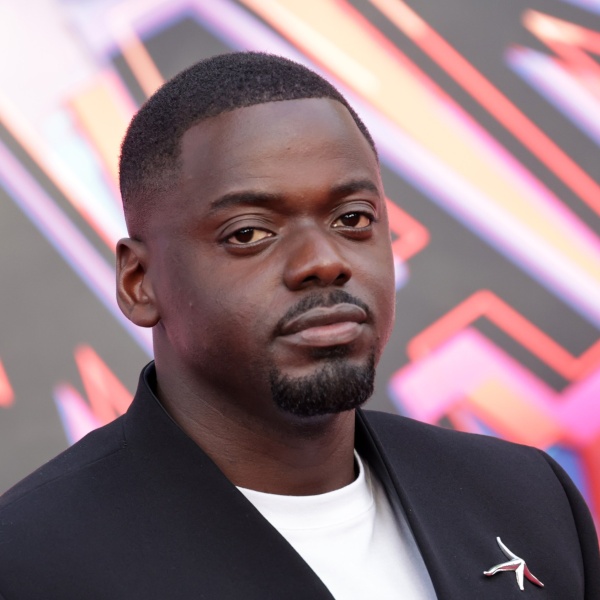There comes a time in every heterosexual woman or queer man’s life where we have to wonder: What is it about men that is at once so despicable and so alluring?
There are statistically more male serial killers, more male sociopaths, and — let’s be real — more male assholes than there are female counterparts. That’s just scientific fact. Sure, you can click on the hyperlinks, but do you really need to read a Psychology Today post between looking at this review and scrolling through the dating apps?
But the foundation of heteronormative rom-coms goes as follows: Girl meets boy, girl falls for boy, girl changes herself slightly for boy, and boy proposes. The end, happily ever after, everyone is great and good. Yeah, if you’re currently dating (or have been on dates at all in the 21st century), you know that’s not how it works, especially when situationships, hook-up culture, and more open-mouthed options than not are out there.
Thankfully, we finally have a place to hang our metaphorical hat: “I Love You Forever.”
Cazzie David (yes, the daughter of “Seinfeld” and “Curb Your Enthusiasm” creator Larry David) and her creative partner Elisa Kalani co-write and direct their feature debut “I Love You Forever.” Kalani and David previously co-created the critically acclaimed web-series “Eighty-Sixed.”
“I Love You Forever” is a mix of a gender-swapped “Fatal Attraction” unhinged-ness and “Promising Young Woman” aesthetic sensibilities, but don’t call the feature an erotic thriller. No, “I Love You Forever” unfolds like a documentary to those who have lived a similar experience — and a stalker horror movie to others.
“Single Drunk Female” breakout star Sofia Black-D’Elia leads the film as law student Mackenzie, whose only real romantic prospect, aka her hook-up buddy (Raymond Cham Jr.), is a total tool. While at the birthday party of her bestie (David) surrounded by other friends (Jon Rudnitsky), Mackenzie meets charming broadcast journalist (read: narcissist) Finn (Ray Nicholson), who sweeps her off her feet quite literally with bold romantic gestures, vulnerable admissions, and cute gifts.
But it’s all moving a little too fast for those of us who know where it’s going. As Mackenzie keeps gushing about how sweet and thoughtful Finn is, his constant check-ins seem more like methods of control than concern, and his vulnerable side becomes a tool of manipulation and gaslighting to the point of Mackenzie questioning her own sanity not only as a partner but as a person.
As Mackenzie’s friends grow more concerned, Finn starts emotionally strangling her until she becomes an isolated shell of a person. The only real issue with “I Love You Forever” is that you know where this is going: It’s not so much a slow build so much as Finn’s glaring manipulative tactics seeping into Mackenzie’s daily life. Fighting until four in the morning, distracted while in class, even looking to a hotel security worker for help leaving Finn’s room — these are all staples of a woman in crisis, even as Mackenzie tries to convince herself otherwise. Just look at how sweet it was for Finn to check in about her day! The love-bombing felt extreme immediately, but perhaps it would read as too over-the-top or heightened to others. The sad truth of the matter is that it’s not.
Sure, Finn verges on “American Pyscho” behavior and keeps jewelry trinkets from exes as trophies like a serial killer would. But with Nicholson’s smile that he, too, inherited from his real-life father Jack Nicholson, it all makes the rom-com side of the romantic horror film feel more real. Nicholson sells the audience on Finn selling himself to Mackenzie, and it’s not that Mackenzie is too blind to see his faults; it’s just that Finn is that good of an emotional abuser.
Nicholson’s performance as Finn calls to mind the same twisted women-hating turn Alden Ehrenreich gave in “Fair Play.” While the two films vastly differ in tone, they both offer a pulse on modern society. Here we have three female filmmakers, David and Elani plus “Fair Play” writer-director Chloe Domont, who opted to make their feature debuts about toxic relationships. If this isn’t a call to action, we don’t know what is.
As for the lead star Black-D’Elia, if you haven’t seen “Single Drunk Female,” please go and watch the delightfully dark Hulu sitcom that was devastatingly canceled after two seasons. And then come back and affirm that Black-D’Elia is one of the actresses of the moment. Similar to how Camila Mendes has locked down her own niche corner of the marketplace by executive producing smart genre rom-com “Upgraded” and leading another SXSW-selected film “Música,” Black-D’Elia is ushering in a next generation of sarcastic, relatable, lovable stars. Black-D’Elia has an Emma Stone in “Easy A” vibe, and alongside Nicholson, “I Love You Forever” feels like a jumping-off point for its two leads.
And for viewers, the film is more of a resting place for feeling seen. While “I Love You Forever” has its faults (not every joke lands and some scenes verge on over-the-top, admittedly), its biggest cultural contribution is capturing a hidden pain that too often goes unacknowledged for fear of blame and embarrassment. Oscar winner Diablo Cody produces the feature, which fits in with her own filmography of women reclaiming their power. Mackenzie may need a minute to get back on her feet, but “I Love You Forever” serves as a tangible outlet for people to point to and say “I experienced this, please help.” And for that, we love the film forever.
Rating: B+
“I Love You Forever” premiered at the 2024 SXSW Film & TV Festival. It is currently seeking U.S. distribution.





